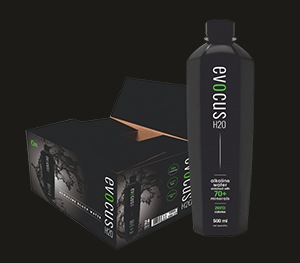Mineral depletion has become a major concern globally over the past few decades. Corroborating the statement; the 1992 official Rio Earth Summit from United Nations reported a 76% drop in mineral levels in agricultural soil in Asia; 85% in North America and 72% in Europe.
If you are wondering how this mineral depletion is our problem, let me first clarify or reiterate that every living organism, starting from a bacterium to humans, needs minerals in specific amounts. Deficiency of one or more minerals starts to reflect in our health. For example deficiency in Magnesium may lead to constipation, anxiety, depression, and sleep problems. Likewise, lack of Zinc could lead to skin problems, while lack of Selenium could lead to infertility in men and troubled heart function.
One might find it difficult to wrap one’s head around these sophisticated, scientific terms, but, the bottom-line is to simply understand the relevance of minerals in our health and fitness levels, and that their absence in our body could lead to severe medical issues.
Now the question is how to make up for the lack of minerals in our systems when the deficiency symptoms surface? Or why wait for the deficiency to occur at all? How about adopting a preventive approach? The most obvious answer to that question would be to consume a lot of nutrient rich food and farm fresh produce from local sources, or grow our own food wherever possible. Now, if we lived in an ideal world, getting all the necessary nutrients and minerals from our food would be easy. But considering the depleting mineral levels in the soil, that’s not an option we could completely rely upon. Another option would be to consume multivitamins or mineral supplements, but these are inorganic minerals, with poor bio-availability. Which means the rate at which these minerals are absorbed in the body is very slow. Additionally, heavy doses of multivitamins and mineral supplements could cause liver damage.
Now does that mean we’ve run out of options? Perhaps we need to dig deeper into nature and understand what works best for the human body.
On further research it was revealed that these substances could possibly be the solution to health issues caused by lack of minerals in the body. Primarily these are naturally occurring deep earth substances, which are a by-product of humification – a process that takes place over millions of years. One of the key aspects of these naturally occurring minerals is that they are difficult to reproduce chemically, making it rare and fully organic.
These minerals in the stomach help remove toxins from the gut and fortify the immune system, apart from better processing of foods that we consume; attacking foreign invaders and aiding the body’s natural detoxification process.
Now that we have a better understanding of some deep earth substances that restore the mineral and nutrition deficiencies in the human body, let’s get back to the basics of a human body.
Almost anyone in the world who is in good shape and sound health, recommends drinking enough water during the day. And rightly so, because religiously drinking 3 litres of water per day has kept me in good health and all major ailments at bay. But what is it about water that the human body depends on it so much? We have all heard it time and again that the human body comprises 60% water, but little do we know that a mere 2% drop in water content in our body could lead to serious health issues such as short-term memory loss and concentration problems etc. Therefore, everyone should make sure one consumes adequate water every day.
Alongside keeping our bodies hydrated, water has various other important functions in our body. For instance, it aids in digestion and metabolism; it protects and cushions our body tissues, joints and even some major body organs from shock. It lubricates our joints that maximises our physical performance and also prevents medical conditions like arthritis. Furthermore, it regulates body temperature through sweat.
In the first part we discussed the necessity of minerals and nutrients in our body, and in the second, we recognised the importance of water; tying up both the ends, water has a vital role to play in the transportation and absorption of minerals and nutrients in our body. It is an integral component of blood that functions as a carrier of nutrients in our body to every cell. While transporting these nutrients to various cells, water also helps the organs to absorb nutrients. Most importantly, it circulates oxygen in the blood.
On a concluding note, if these minerals, nutrients and water are combined together, it would be an extremely effective way to combat health issues and to fulfill the deficiency of any minerals and nutrients in our bodies. Such a combination would keep our bodies hydrated and well nourished, and thus result in continuing good health, energy and fitness.
- July 20, 2020
- Alkaline water
